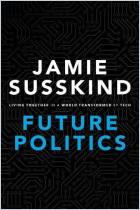Während die Bewertung Ihnen sagt, wie gut ein Buch nach unseren beiden Kernkriterien ist, sagt es nichts über seine besonderen Merkmale aus. Daher verwenden wir einen Satz von 20 Qualitäten, um jedes Buch anhand seiner Stärken zu charakterisieren:
Umsetzbar – Sie erhalten praktischen Rat, den Sie unmittelbar in Ihrem Beruf oder im Alltag anwenden können.
Analytisch – Sie erfahren etwas über die tieferen Zusammenhänge eines Gegenstandes.
Hintergrund – Sie erhalten kontextuelle Informationen als Fundament für Ihre Handlungen oder Analysen.
Meinungsstark – Sie lesen einen Autor, der keine Angst hat, etablierte Ansichten zu hinterfragen.
Umfassend – Sie finden jeden Aspekt des Themas behandelt.
Praktische Beispiele – Sie erhalten praktischen Rat, der durch reale Anwendungsbeispiele veranschaulicht wird.
Kontrovers – Sie werden mit stark diskutierten Meinungen zu einem Thema konfrontiert.
Eloquent – Sie kommen in den Genuss eines meisterhaft präsentierten Textes.
Unterhaltsam – Dieser Text fesselt Ihre Aufmerksamkeit.
Augenöffner – Sie erhalten unerwartete Einblicke.
Für Einsteiger – Sie finden mithilfe dieses Textes einen leichten Einstieg ins Thema.
Für Experten – Sie erhalten vertiefende Informationen oder Anleitungen.
Brisant – Der Text behandelt ein brisantes, aktuelles Thema.
Innovativ – Hier finden Sie wahrhaft neue Ideen und Ansätze sowie Beschreibungen brandneuer Produkte oder heißer Trends.
Insiderwissen – Hier erwarten Sie exklusive Informationen aus erster Hand.
Inspirierend – Sie werden das Gelesene gleich in die Tat umsetzen wollen.
Überblick – Hier finden Sie die wichtigsten Informationen zu einem Thema.
Wissenschaftsbasiert – Die Lehren oder Einsichten des Buches gründen auf aktuellen Forschungsergebnissen.
Visionär – Sie erfahren, was die Zukunft für Sie bereithalten könnte.
Systematisch – Der Inhalt des Buches ist dank einer sinnvoll strukturierten Aufbereitung besonders leicht anzuwenden oder zu verstehen.





























Comment on this summary